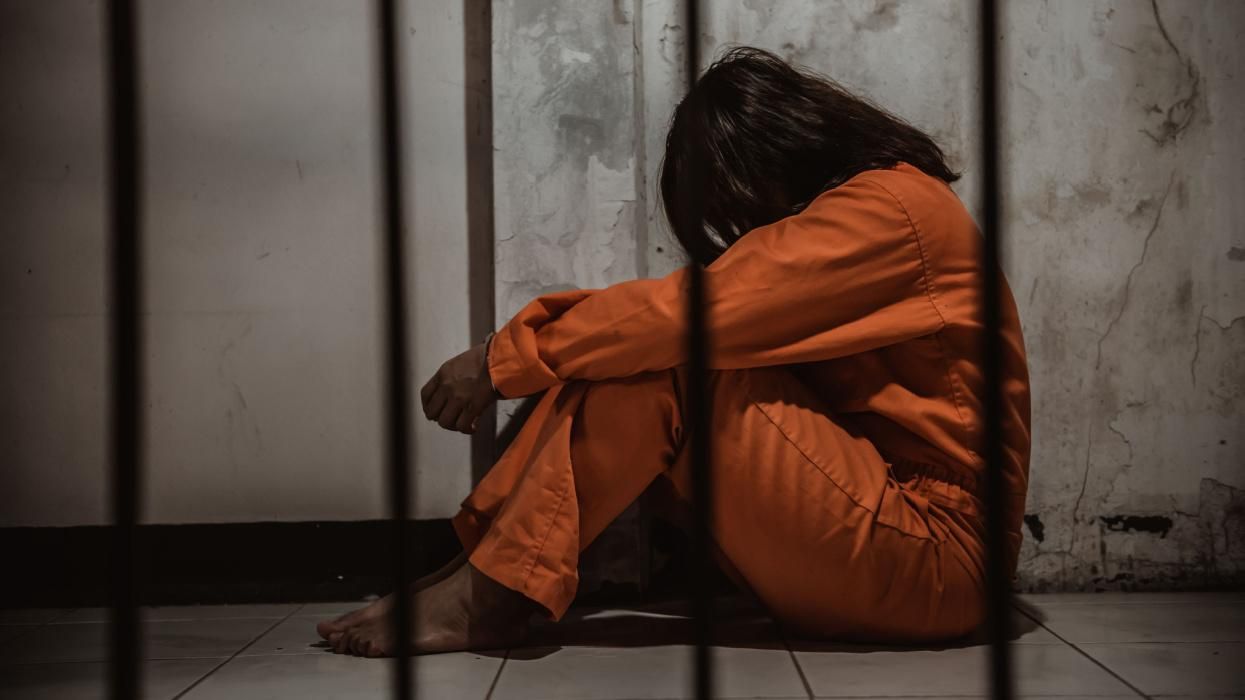Ever since the overturning of Roe v. Wade, women have faced unparalleled roadblocks in seeking abortions. For incarcerated women, access to reproductive healthcare has become abysmal.
Even before the Supreme Court's decision, women in prison reported downright cruel conditions surrounding care for pregnant inmates. Abortion access has always been limited for convicts, with some even forced to give birth while shackled.
According to The Prison Policy Initiative, around 58,000 inmates every year are pregnant when they enter jail or prison. Idaho has the most women prisoners of any state, while also having one of the strictest abortion bans.
Deputy director of the Reproductive Freedom Project at the ACLU Alexa Kolbi-Molinas told The Guardian, “People experiencing incarceration and pregnancy in states where abortion has been severely restricted or outlawed altogether, will likely face new barriers as jails and prisons seek to hide behind the supreme court’s decision to avoid their constitutional obligation to provide healthcare, including abortion, to people in custody."
The Sentencing Project reports that in the past forty years, the number of women in prison has increased by 475 percent. Black women are incarcerated 1.7 times more than white women, whereas Latina women are imprisoned 1.3 times the rate of white women.
Corene Kendrick, deputy director of the ACLU’s National Prison Project, added that many of women remain incarcerated due to their inability to afford bail. Despite this, inmates seeking abortions are often required to pay out of pocket.
“State prison systems or jails sometimes would force pregnant people to pay for the procedure," Kendrick said. "Sometimes including even the cost of transport or the time to have prison guards with them, which is problematic because normally if an incarcerated person is going off site for any other medical procedure, they wouldn’t be charged for the cost of transport or the time for the guards."
She added: “Trying to expect those people in jails to come up with the money for transport to an offsite abortion procedure when they can’t even come up with the money to make bail, to go home to their families, really creates an insurmountable barrier.”
With states across the country implementing abortion bans, Kolbi-Molinas believes that the problems in prison healthcare will only be exacerbated, and that incarcerated women will bare the worst of it.
She said: “Even where correctional staff and officials do not deliberately block access to care, the reduced availability of services and need to travel even greater distances to access legal abortion, and the greater demand for services in states where abortion is still legal, will only exacerbate all the financial and logistical obstacles that already existed."
- Richard Donner, 'Superman,' 'The Goonies,' and 'Lethal Weapon ... ›
- Lionel Richie Cancels 2022 European and UK Shows due to Covid ... ›
- Sean Ebony Coleman on Leveling the Playing Field & Uniting Trans ... ›
- The Abortion Laws on Your Midterm Ballot This November ... ›
- Indiana's Democratic Candidates Sign Contract to Protect Abortion ... ›
- Biden to Promise Abortion Rights Law as Democrats Try to Rally ... ›
- South Carolina House to Pass Near-Total Abortion Ban - Advocate ... ›
- This Is How Twitter Could Affect the Midterm Elections - Advocate Channel ›
- Iowa Judge Blocks Six-Week Abortion Ban From Taking Effect - Advocate Channel ›
- Where Abortion Stands 6 Months Post Overturning Roe v. Wade - Advocate Channel ›
- Abortion Restrictions May Have Increased Suicide Rates - Advocate Channel ›
- FDA to Allow Pharmacies to Dispense Abortion Pills - Advocate Channel ›
- South Carolina's Six-Week Abortion Ban Struck Down by State Supreme Court - Advocate Channel ›
- US House Passes 'Born Alive' Abortion Bill - Advocate Channel ›



















































